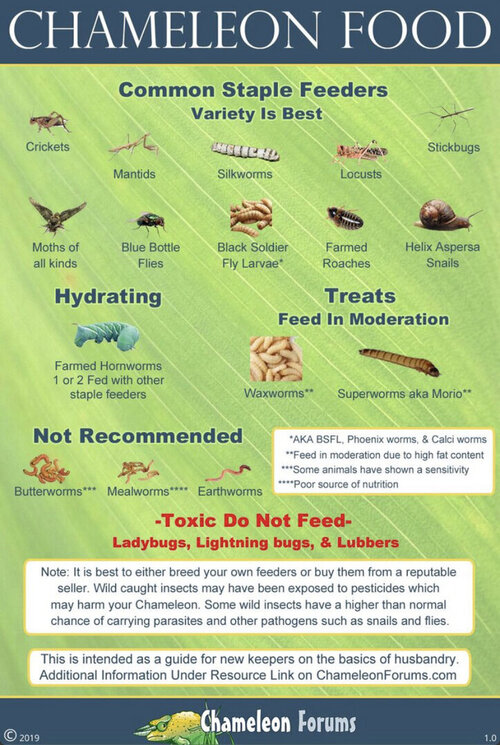starter
Member
I have a Yemen Veilded female called "Lizzie" who is very healthy, happy and round (she might be gravid meanwhile) and weighs 210 grams. She is about 1.5 years old and I have raised her from a baby. A few months ago I have adopted a 2 year old male called "Yoshi" and I wonder whether he is healthy and normal or not - or whether my female is just overweight? On Google images I see that males are usually bigger than females. This male is only about the same size as Lizzie, weighs only 190 grams, and looks very thin. I had hoped to feed him up (he is getting the same abundance of food as Lizzie), but he just won't get fatter. Therefore I would like to know: What is a healthy body weight for a female and for a male chameleon?



